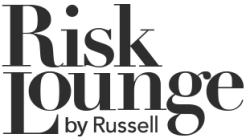
The news that Dubai-based elseco, one of the world's largest satellite insurers, reportedly expects its revenue to quadruple by 2020 as it expands coverage of energy and aviation, is a reminder that growth in this market will vastly expand telecommunications access - as well as increase underwriters’ potential loss exposures.
CEO Laurent Lemaire - Elseco's sole owner – told the Reuters News Agency: "I created the company here because the manufacture of satellites was moving east with China, India, Korea, Japan launching more and more satellites. We could also see that with the surge in oil prices after 2002, Gulf states would be more inclined to invest in and purchase key infrastructure including telecommunications and satellites."
Elseco expects its 2015 revenue to be about $97 million - $80 million from space, $10 million from aviation and $7 million from energy.
"In the States there are a lot of satellite projects being led by the dot-com guys such as Google and Facebook - they want to give everyone internet access and satellite is the only means to reach the last 20 percent of the world's population," said Lemaire.
Satellite insurance revenue would likely reach about $120 million in 2020, while a greater focus on aviation and energy would earn about $300 million combined, said Lemaire.
Russell Group was particularly interested to read in the Reuters article that: “One gauge of an insurer's size is the value of losses it could absorb from a single policy. Elseco's is $160 million, making it the largest satellite insurer by this measure.”
"We probably insure 250 risks, so potentially we have the ability to lose $40 billion," Lemaire admitted.
The satellite sector – like aviation and energy – is exposed to a wide variety of risks that correlate with all the Specialty classes so underwriters are increasingly interested in learning about data sets that are integrated.
Russell has for a number of classes developed and implemented integrated analytics’ software which utilises integrated data sets sourced from the market place. ALPS Energy, for example, captures worldwide offshore energy assets including fixed, linked, mobile platforms, subsea equipment, pipelines and terminal data to support portfolio analytics. The data can be used to model aggregate exposure and pricing at the asset level, and analyse realistic and probabilistic scenarios.
In terms of satellite exposures meanwhile, ALPS Aerospace also supports reinsurers that underwrite a portfolio of space risks (including situations where acceptance is by consortium membership rather than reinsurance treaty). Utilising a separate space questionnaire, with additional tables for launch details, Russell Group is able to provide analysis for launch vehicle exposures, in-orbit accumulation, and generic defect loss scenarios.
As Thierry Colliot, AGCS Head of Aviation France and General Manager of SpaceCo, says: “Even when the launch is successfully finished, there are still risks of damage, malfunction or total loss during a spacecraft’s operational life. After all, even the failure of a tiny piece of equipment can cause a total loss.”
In such an environment, an integrated data set can really come into its own, particularly when, as AGCS describes: “potential interruptions of a satellite’s service in our globalized world are just as problematic. This is a huge concern for spacecraft users, individual transponder users such as TV channels and Internet providers, but also for banks, car manufacturers and large industries that use telecommunication networks.
“Particularly in situations of tremendous public attention, for example during broadcasts like the soccer World Cup Final or the Olympic Games, a malfunction would prove disastrous for commercial revenue and the image of TV stations.”
Russell Group has outlined in past white papers and blogs that we all reside on an increasingly inter-connected world in which risk is multi-layered and complex – a satellite launch failure is no longer an individual risk but can have potential loss implications across multiple Specialty classes.
To find out more about Russell Group’s approach to modelling these integrated loss exposures, contact sbasi@russell.co.uk





